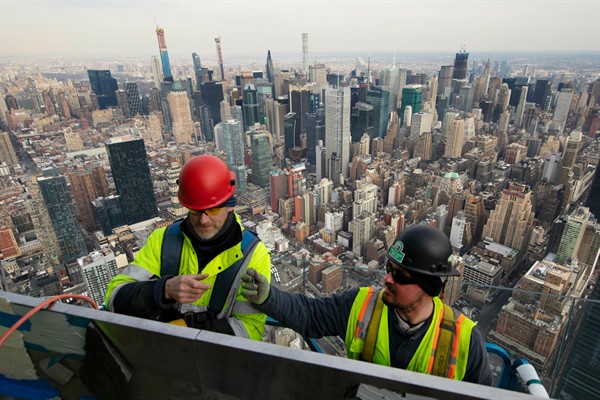Ever since the first cities emerged as a form of human settlement, urbanites have pondered their future. Plato’s “Republic,” written 2,400 years ago and still read on college campuses today, put forth a vision of Kallipolis, a beautiful “just” city-state run by a philosopher king who prioritized the “power of knowledge,” but who nevertheless resembles a benevolent dictator. A millennium and a half later, Thomas More’s landmark “Utopia” imagined a peaceful island metropolis where citizens would share goods and meals, learn a given trade and worship freely—albeit while also enslaving people, though many believe the inclusion of slavery was more ironic political commentary than recommendation.
Today, the long-held tradition of prophesying possible futures for urban landscapes has taken new form in the movement to build “smart cities,” in which the processes for building, operating and maintaining urban life are infused with modern tech capabilities, like algorithms, sensors and artificial intelligence, connecting city operations to what’s known as the “internet of things.” It’s certainly not the first techtopia to be heralded—the Jetsons-like “Futurama” displayed at New York’s 1964 World Fair comes to mind—but that hasn’t stopped it from attracting some serious attention worldwide.
In recent years, entire smart cities have been built from the ground up, like Masdar City in the United Arab Emirates and Songdo in South Korea. Meanwhile, engineers have developed new ways to integrate smart technologies into urban services and infrastructure in existing cities, like London and Singapore. Dominating urban policy conversations throughout the late 2010s, proponents of the smart city promised to make urban life healthier, more livable and more responsive to its citizens.

